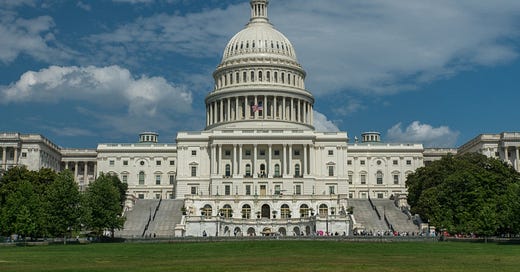House Subcommittee Approves Bill That Would Change CFPB Structure, Funding
The FY25 Financial Services funding bill also would cut CDFI funding
House Republican appropriators are proposing again to convert the Consumer Financial Protection Bureau into a five-member commission that would be subject to the annual appropriations process.
The FY25 Financial Services appropriations bill, which was approved by the House Financial Services Appropriations Subcommittee on Wednesday, also would prohibit the CFPB from implementing several controversial rules. The legislation was approved by the subcommittee by voice vote.
The legislation calls for the Community Development Financial Institutions Fund to receive $276 million in FY25. That represents a $47.4 million cut compared to the program’s FY24 funding level. The bill also would provide $3.423 million for the National Credit Union Administration’s Revolving Loan Fund program, a cut of $42,000 compared to the program’s FY24 funding level.
The bill would prohibit sanctioning any financial institution for providing services to a marijuana-related business. Such a plan has been included in must-pass legislation in the past but has never been included in a final measure agreed upon by the House and Senate.
The funding cuts, changes to the CFPB and several controversial policy riders proposed by House Republican appropriators are unlikely to be accepted by the Democratic-controlled Senate.
For instance, in past years, the House has proposed converting the CFPB into a commission and making it subject to annual appropriations, but the Senate never has accepted those proposals. It may be even more difficult to convince senators to go along with changes to the CFPB now that the U.S. Supreme Court has said that the agency’s current funding method is constitutional. The agency currently draws its funding from the Federal Reserve.
Nonetheless, in this bill the House appropriators are proposing to provide the agency with an appropriation of $650 million in FY25, which House appropriators said is $35 million below the level the agency would be authorized to receive from the Federal Reserve.
The bill would convert the CFPB, which currently is run by a single director, into a five-person bipartisan commission. Members would be nominated by the president and be subject to Senate confirmation.
The bill also would prohibit the agency from implementing rules that would:
Cap most credit card late fees at $8. The CFPB has issued a final rule doing that, but the U.S. Chamber of Commerce, the American Bankers Association and others have filed suit accusing the bureau of exceeding its authority. A Texas federal judge has issued an injunction temporarily blocking the rule.
Require small financial institutions from having to collect and report to the CFPB their lending activity to women-owned and minority-owned businesses. Federal judges in Texas and Kentucky had temporarily blocked implementation of a final rule requiring such reporting while the agency’s funding mechanism was pending before the Supreme Court. However, the courts have not yet acted on the injunctions or cases now that the CFPB’s funding scheme is settled law.
Implement a registry for non-bank financial organizations. The CFPB on Tuesday issued a final rule that would establish a registry to “detect and deter” corporate offenders that have broken consumer laws and are subject to federal, state, or local government or court orders.
House Financial Services Appropriations Subcommittee Chairman Rep. David Joyce, R-Ohio, said that the bill includes provisions that would prevent the Biden Administration from implementing its “overbearing and costly agenda.”
Democratic appropriators sharply criticized the bill, saying that funding levels would allow “greedy corporations to continue price gouging. These changes increase the cost of living for hardworking Americans.” During the markup, subcommittee ranking Democrat Rep. Steny Hoyer of Maryland flatly declared, “This bill is going nowhere.”
Democratic subcommittee members said they oppose the riders and funding cuts but offered no amendments to the measure. Traditionally, amendments to House appropriations bills are offered during a full committee markup or when the bill reaches the House floor.
America’s Credit Unions sent a letter to appropriations leaders supporting several of the policy riders but asking for funding increases for the CDFI and CDRLF programs.
In the letter, signed by the trade group’s President/CEO Jim Nussle, America’s Credit Unions asked Congress to provide $500 million for the CDFI program and $6 million for the CDRLF in FY25. Nussle added that the trade group supports converting the CFPB into a five-member commission, subject to the annual appropriations process. He said that America’s Credit Unions also endorsed the subcommittee’s efforts to restrict CFPB rulemaking.



